Ukraine's Anti-Corruption Progress
2014-2025
Table of Contents
Introduction
Much has been written regarding the issue of corruption in Ukraine, which is certainly a real and pressing problem. Far fewer resources provide information about Ukraine’s significant progress in combatting that corruption; this page seeks to fill that gap. In only a decade, Ukraine has constructed entirely new democratic institutions dedicated to fighting corruption, emerged as a global leader in data transparency and digitalization, and passed over a hundred anti-corruption reforms. Any conversation about the corruption challenges still faced by Ukraine should thus be placed in context of the progress it has made so far.
Statistics at a glance
- Ukraine has passed over 1,600 reforms since 2015, of which many address corruption.
- Ukraine's ranking rose by 40 places in the Corruption Perceptions Index from 2013 to 2023.
- Experiences with corruption among surveyed Ukrainians dropped from 70% in 2015 to 15% in 2021.
- Ukraine's Open Budget Survey score rose from 46 in 2015 to 65 in 2021—the same score as the current #1 country—emerging as an "open budgets champion."
- Ukraine rose from 112th place in 2014 to 64th place in 2020 in the Doing Business Index.
- Ukraine's Open Data Maturity ranking increased from #17 in 2020 to #3 in 2024, compared to EU members.
- Ukraine also ranks #1 in both impact and policy for the Open Data Maturity assessment. With an overall score of 97%, it's rated as a "trend setter."
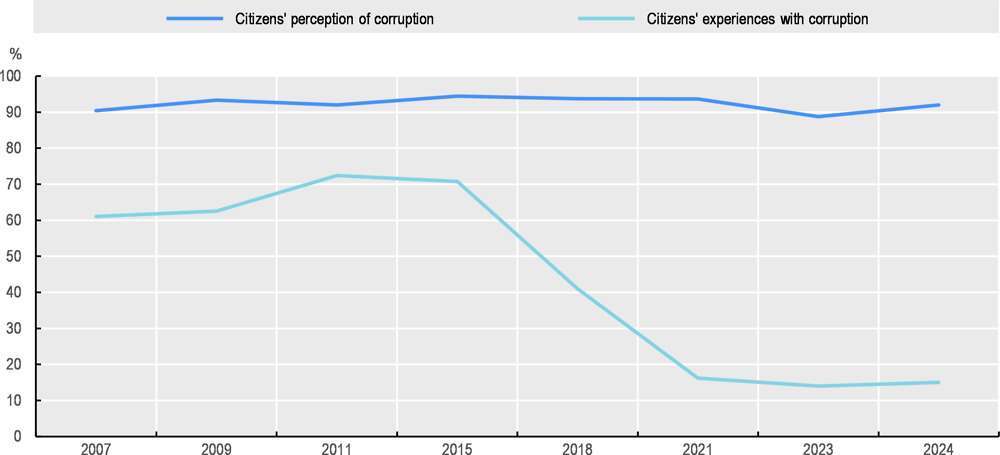
Note: Corruption perceptions are slow to improve among surveyed Ukrainians due to high levels of media coverage and negative historical experiences. A better measure may be corruption experiences.
A note on the full-scale invasion
Ukraine’s scores have declined on several corruption and transparency indices after the full-scale Russian invasion in 2022. This setback should be viewed in context: focused on defending its existence as a country, Ukraine now has much less money and political capital to spend on anti-corruption measures. The government has also suspended standard budget procedures, classified some data that was previously transparent for security reasons, and sometimes made direct (rather than open) contracts in order to speed up the procurement of vital supplies. All of these factors cause Ukraine to score lower, but should generally be considered as temporary setbacks.
Ukraine's path to progress
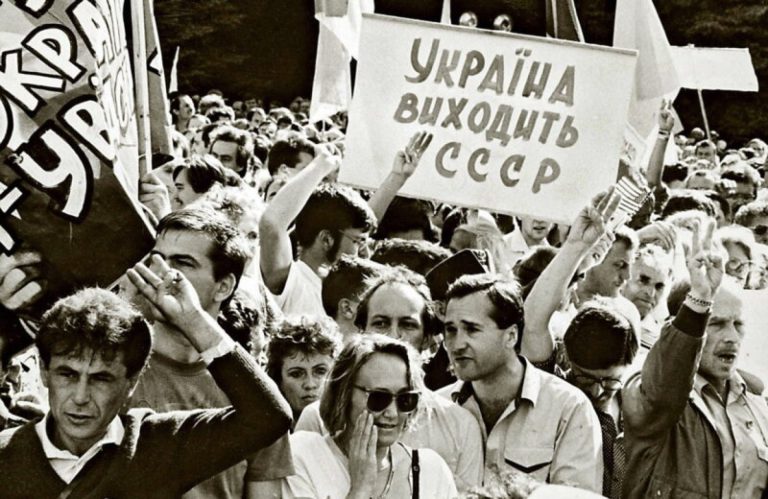
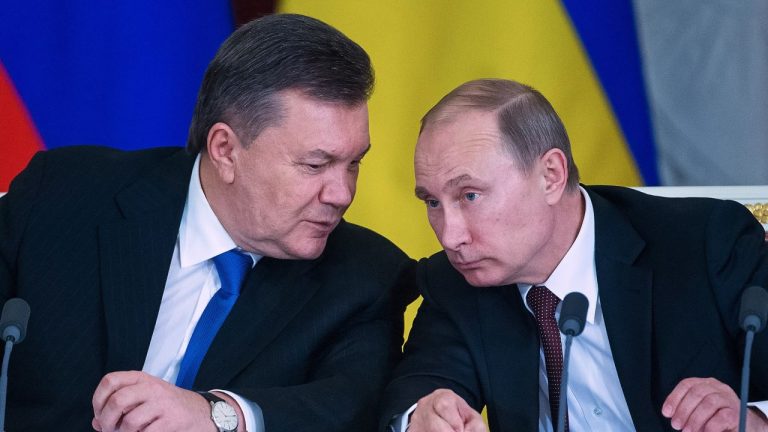
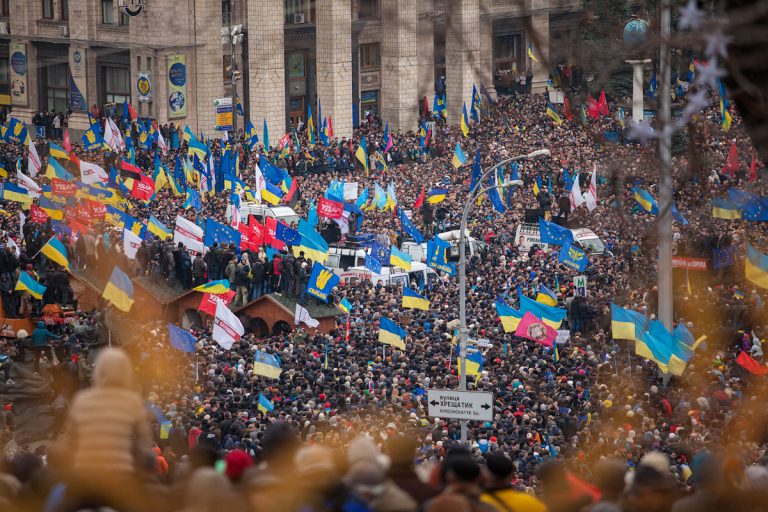
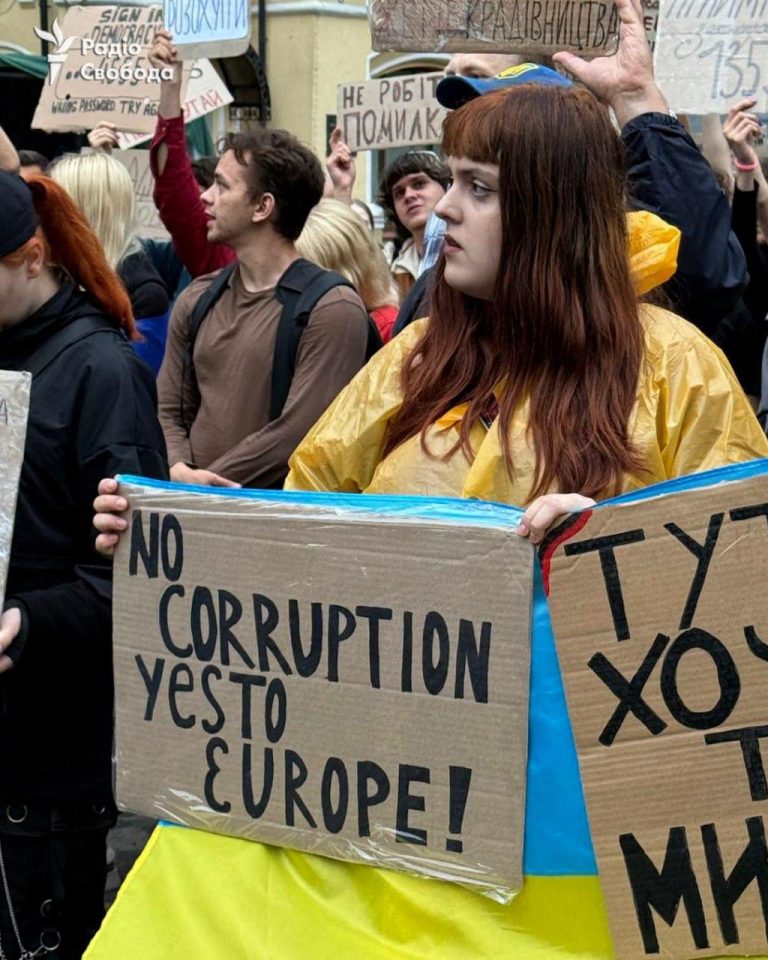
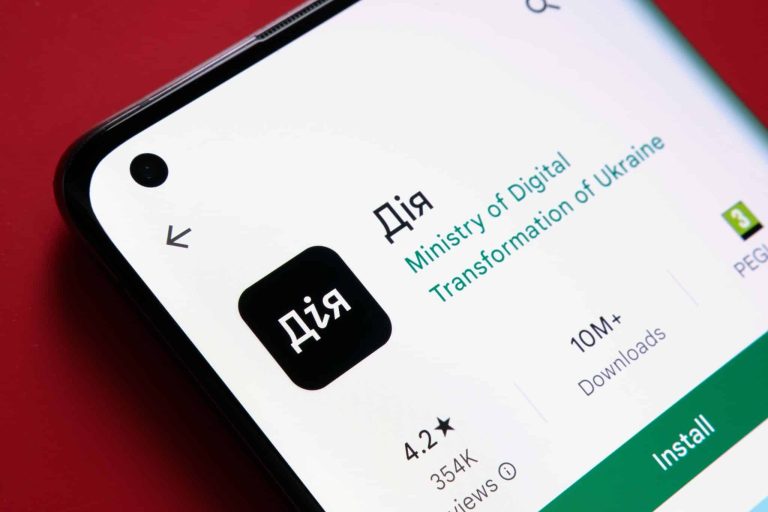
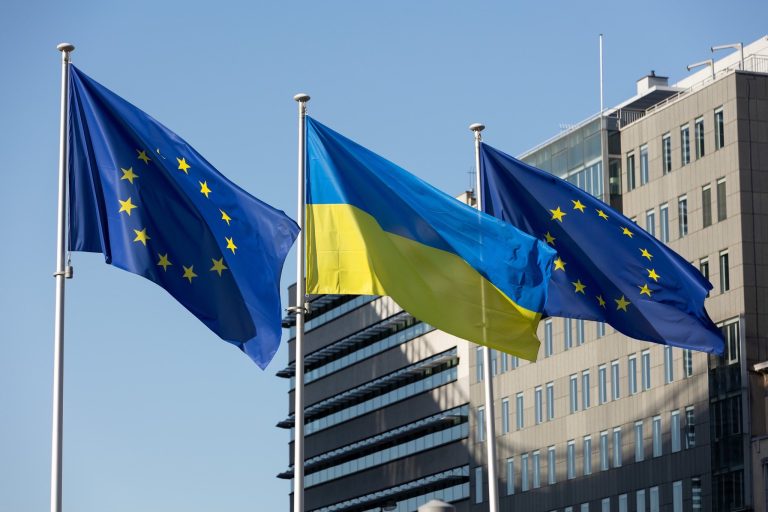
Anti-corruption infrastructure
Investigation
National Anti-Corruption Bureau of Ukraine (NABU)
This independent executive agency is the main body responsible for the investigation of high-level corruption cases. It also prepares cases for prosecution. Since its powers are investigatory, it cannot indict suspects. Instead, its findings are passed on to the Special Anti-Corruption Prosecutor's Office (see the next section).
State Bureau of Investigation (SBI)
This is a law enforcement agency that investigates pre-trial criminal cases involving law enforcement officers, judges, and high-ranking officials. Since the full-scale invasion, it also investigates Russian war crimes and the collaboration of Ukrainian enterprises with Russia. It was supplanted (but not replaced) by the establishment of NABU, and isn't considered fully independent.
Prosecution
Specialized Anti-Corruption Prosecutor's Office (SAPO)
Also known as SAP, this independent office supports and oversees corruption investigations by the National Anti-Corruption Bureau of Ukraine (NABU). Its main task is to prosecute high-level corruption cases in court. It may also represent the interests of a citizen or state in corruption cases.
Justice
High Anti-Corruption Court (HACC)
This court was created specifically to oversee corruption cases, at the behest of Ukrainian civil society and international organizations. The integrity and political independence of its judges is ensured by the Public Council of International Experts (PCIE), which has the power to block candidates. Appeals to corruption cases are considered by the separate Appeal Chamber of the High Anti-Corruption Court.
Asset Recovery and Management Agency (ARMA)
This agency is tasked with locating, recovering, and managing "dirty" assets seized in criminal cases, especially corruption cases. It publishes a registry of these assets, and can sell them off in public auctions using the electronic Prozorro.Sale platform.
Prevention
National Agency on Corruption Prevention (NACP)
This agency formulates and implements anti-corruption policy, for example, by developing State Anti-Corruption Programs. It also works to prevent and detect corruption in local governments, enterprises, and organizations. To this end, it maintains a registry of e-declarations (online asset declarations) required to be released by public officials, collaborates with whistleblowers, monitors conflicts of interest, and monitors the finances of political parties.
Areas of Progress
Here, we summarize just a few of the most significant reforms in each major area of progress.
Open data and digitalization
Open data and digitalization is of the most important areas of innovation in the fight against corruption in Ukraine. Increased transparency related to the state budget and expenditures allows civil society to monitor that all funds are being spent as they should. Furthermore, improving ease of access to public services reduces opportunities for low-level administrative corruption.
- In 2015, the Ukrainian government created the eData portal, which publishes information on all public expenditures with just a one-day delay.
- 2016: An online university application portal was opened, allowing prospective students to submit documents electronically. This allowed them to apply to more universities and reduced opportunities for corruption in the admissions process.
- In 2017, the government launched the eHealth platform, which helps to collect healthcare data, link patients and doctors, issue electronic drug prescriptions, and allocate state funds more efficiently. 17 million users joined the platform within 6 months.
- In 2018, Ukraine created an Open Budget portal allowing citizens to view information on state revenues and expenditures, credit, financing, debt, and even local budgets.
- In 2020, Ukraine launched the Diia (“Action”) platform, a web portal and app offering more than 70 public services, allowing citizens to obtain digital ID and passports, sign documents, register businesses, renew drivers’ licenses, and even pay traffic fines. Diia has won several international design and innovation awards, and now has over 22 million users.
Public procurement
Public procurement was previously one of the worst areas for corruption in Ukraine. The government could sign contracts with favored companies through non-competitive processes, and there were opportunities for embezzlement by inflating the price of contracts. Due to these issues, the country lost $2 billion to corruption in public procurement every year. Increased digitalization and transparency in the procurement process has significantly helped to combat this problem.
- In 2015, the Ukrainian government mandated that public procurement be conducted via an electronic platform. It required electronic tenders and auctions, and that all results would be made available to the public. This law received the highest score in Reform Index history.
- In 2016, use of the Prozorro (“Transparent”) e-procurement platform was mandated for all central and local government authorities, saving the budget $1.9 billion in its first two years. Its advanced open data system allows users to track the efficiency and transparency of public procurement. Prozorro has won several international awards and is even used by the World Bank.
- Also in 2016, the Prozorro.Sale platform was launched, enabling government property to be leased or sold online, which accelerated small-scale privatization in Ukraine. Nowadays, debtors’ assets and sanctioned assets are also sold via Prozorro.Sale.
- In 2020, Ukraine launched the Prozorro.Market platform, allowing the government to procure standardized goods via catalogs. This system has proven more efficient and competitive than traditional tenders.
- In 2022, the MedData system was launched to monitor the procurement of medicines, as well as inventories in medical facilities.
Integrity of public officials
Some of the most important reforms in this area involve the establishment of agencies to investigate and prosecute government officials for corruption (read more about this in the “Anti-corruption infrastructure” section). However, there have been several other key reforms ensuring the integrity of public servants, mainly related to personal finances and hiring practices.
- In early 2015, members of the Ukrainian parliament (Verkhovna Rada) were required to publish asset declarations. In 2016, the requirement to publish electronic asset declarations (“e-declarations”) was extended to hundreds of thousands of public servants.
- In 2015, individual and corporate donations to political parties were capped in an attempt to limit the influence of oligarchs. This reform also required political parties to send quarterly reports on their finances to the NACP.
- Also at the end of 2015, the Ukrainian government introduced open competitions for public service positions, increasing fairness and quality in hiring. In 2018, it modernized the career.gov.ua portal, which posts civil service vacancies and information on competitions.
- In 2023, the NACP adopted a “lifestyle monitoring” procedure based on the asset declarations of public officials, verifying whether their level of expenditures makes sense given their reported income.
Judicial reform
The judicial system is perceived to be highly corrupt in Ukraine, both in terms of unfairness in rulings and the incidence of bribery. The main reforms in this area relate to changes in hiring practices, increased compensation, and evaluations of the integrity of sitting judges. For more information on the High Anti-Corruption Court (HACC), see the section “Anti-corruption infrastructure.”
- In 2016-2017, reforms increased the political independence of judges and significantly raised their salaries and pensions (low pay for public servants is a risk factor for corruption).
- Also during this period, a procedure was adopted for an integrity assessment by the High Qualification Commission of Judges (HQCJ), which is responsible for the selection of judges. It cooperates with the Public Integrity Council (PIC) of experts and civil society leaders to evaluate judicial integrity. In 2016-2019, the Ukrainian Supreme Court was re-elected using this procedure.
- In 2019, a law on judicial self-governance established an Ethics Commission comprised of international experts to evaluate the integrity of members of the High Council of Justice (HCJ). It also involved international experts in the process of electing the HQCJ.
- In 2023, a reform was adopted giving members of the Advisory Group of Experts (appointed by the EU Venice Commission or other international organizations) a decisive vote in the selection of candidates for the Constitutional Court, which are otherwise political appointees.
- In 2024, the number of judges and employees was increased at the High Anti-Corruption Court (HACC) so that it could handle an increased workload of corruption cases.
Business environment
Many of the reforms targeting the business environment have sought to reduce opportunities for rent-seeking and administrative corruption through deregulation and simplified procedures. Others have tried to reduce the ability of government officials and law enforcement to pressure businesses.
- In 2015, the Ukrainian government simplified licensing procedures and halved the number of activities subject to licensing requirements. It also simplified procedures for obtaining permits in some areas. In 2016, online permit applications were allowed.
- To reduce the ability of public officials to pressure businesses, in 2016-2017, the government introduced an automated government supervision system and established the “presumption of innocence” for businesses.
- It also limited the ability of the State Fiscal Service (Ukraine’s tax authority) to pressure businesses by not allowing it to open criminal cases against them without evidence and requiring video recordings during searches.
- In 2023, Ukraine launched the eEntrepreneur service through the Diia platform (see “Open data and digitalization”), which allows entrepreneurs to register as a special category of taxpayers.
- In 2024, the government launched an experiment with the ePermit (Unified State Electronic Permit) system, enabling businesses to obtain various permits and licenses online and obtain documents from various state registries, which will now be interconnected.
- There have also been reforms in industries that face particular issues with corruption, such as mining, construction, fishing, public waste management, and public utilities (electricity). These largely involve deregulation; simplified licensing and permitting requirements; improved transparency standards; and the digitalization of bureaucratic processes.
Table of anti-corruption reforms
Progress of anti-corruption reforms
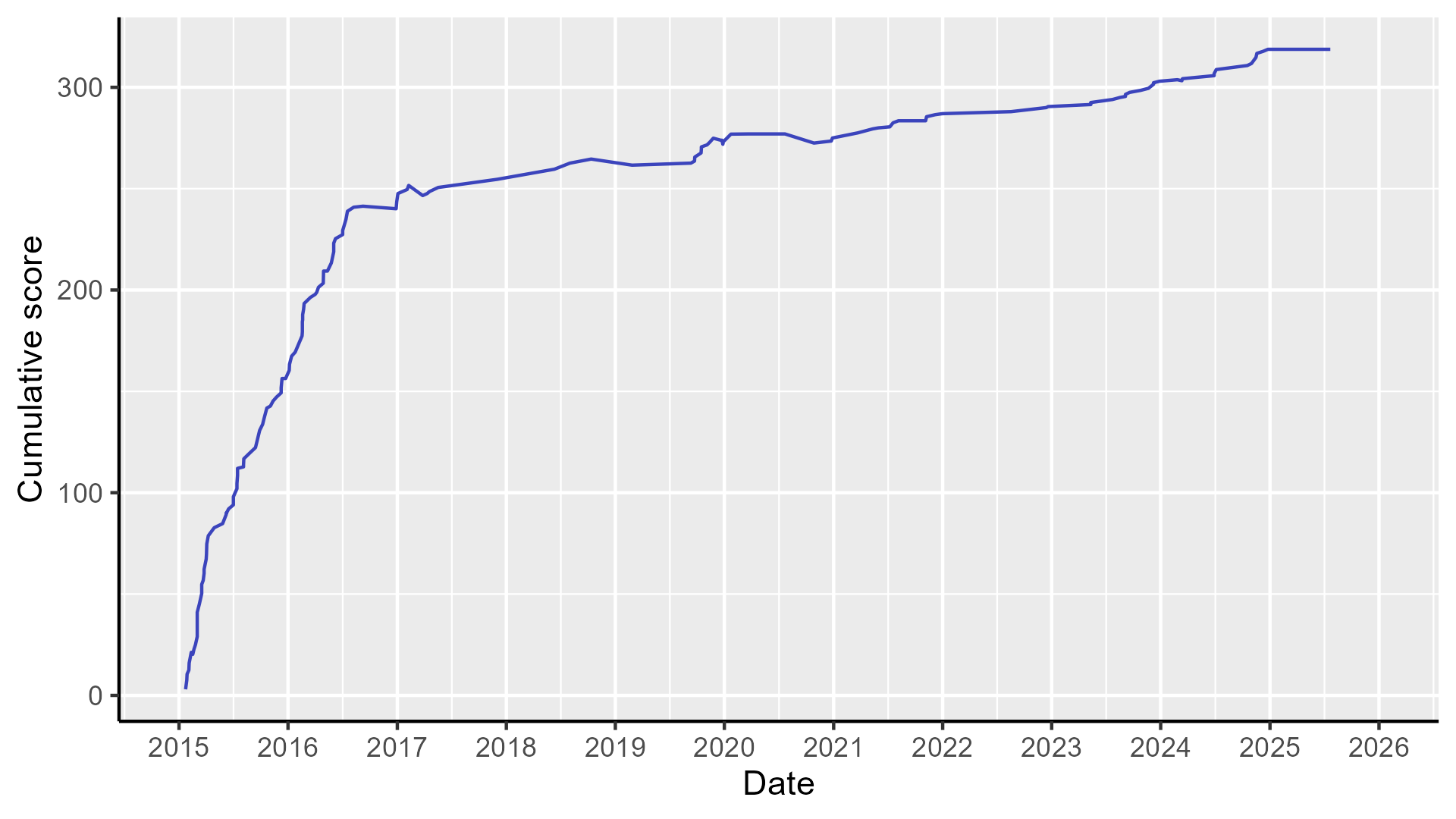
Note: Reforms are assigned a numeric score by Reform Index experts.
| Reform Index score | Date | Reform | Type | Act number |
|---|---|---|---|---|
| 8.5 | 2015-09-28 | Law on the disclosure of public procurement information in accordance with EU directives | law | 679-VIII |
| 8 | 2016-02-17 | Law introducing an electronic public procurement system | law | 922-VIII |
| 6 | 2016-04-29 | The government has equalized gas prices for the population and heat and power companies with import prices from Europe, and the National Commission for State Regulation of Energy and Public Utilities has increased heat tariffs by 75-90% | resolution | 315 |
| 5.5 | 2016-07-13 | Law on the judiciary and the status of judges | law | 1402-VIII |
| 5.5 | 2016-06-02 | Changes to the Constitution of Ukraine regarding justice | law | 1401-VIII |
| 5.25 | 2015-03-18 | The government liquidated "UkrEcoResursy" | resolution | 128 |
| 5.25 | 2015-02-11 | The Ministry of Infrastructure of Ukraine has disclosed procurement information for all subordinate enterprises | order | - |
| 5 | 2018-06-11 | Law on the High Anti-Corruption Court | law | 2447-VIII |
| 5 | 2015-10-22 | The government opens more than 300 registers and data sets | resolution | 835 |
| 5 | 2015-04-04 | The Ministry of Justice launched an online service | order | На підставі 191-VIII |
| 5 | 2015-04-02 | Law on deregulation | law | 191-VIII;222-VIII |
| 4.6 | 2015-12-12 | The Ministry of Health will carry out all state medicine procurements through international organizations in 2016 | resolution | 1396-р |
| 4.5 | 2015-03-18 | The Ukrainian government has abolished the re-registration of medicines | resolution | 125 |
| 4.5 | 2015-01-27 | The Minister of Infrastructure has instructed industry state enterprises to conduct tenders with online broadcasting | order | №81/02/11-15 |
| 4.25 | 2016-06-02 | Law on the reform of corporate governance of state-owned enterprises | law | 1405-VIII |
| 4 | 2020-01-23 | State procurement of medicines has been transferred from international organizations to the newly created institution “Medical Procurement of Ukraine” | resolution | 1172 |
| 4 | 2017-12-01 | Law limiting the pressure of law enforcement agencies on businesses | law | 2213-VIII |
| 4 | 2017-01-03 | Law on the High Council of Justice | law | 1798-VIII |
| 4 | 2016-07-18 | The ability of the State Fiscal Service to open criminal cases against enterprises has been reduced | resolution | -;- |
| 4 | 2016-05-25 | The government has approved the procedure for the operation of the "single window" system at customs | resolution | 364 |
| 4 | 2016-01-13 | Heads of large state enterprises must be appointed exclusively through a competition: government resolution | resolution | 1180 |
| 4 | 2016-01-05 | The National Commission for Financial Services has obligated non-bank financial groups to provide information about their activities and owners | resolution | 2724 |
| 4 | 2015-07-14 | Law making state registry information publicly available | law | 597-VIII |
| 4 | 2015-07-02 | Law on the national police | law | 580-VIII |
| 4 | 2015-04-29 | The government has halved the gas consumption standards for the population without meters | resolution | 237 |
| 4 | 2015-04-09 | Law mandating budget managers to publish budget information as open data | law | 313-VIII |
| 4 | 2015-03-10 | Law simplifying the procedure for agreeing on land management projects | law | 180-VIII |
| 4 | 2015-03-03 | Law on the transparency of public funds use | law | 183-VIII |
| 3.5 | 2016-12-30 | Changes to the Tax Code of Ukraine to improve the investment climate in Ukraine | law | 1797-VIII |
| 3.5 | 2015-03-26 | Law on licensing types of economic activities | law | 222-VIII |
| 3.5 | 2015-02-04 | The Cabinet of Ministers has equalized the legal force of electronic and paper real estate registration documents in Ukraine | resolution | 137 |
| 3.18 | 2015-03-03 | The National Commission for State Regulation of Energy and Public Utilities has increased the gas price for "Ukrgasvydobuvannia" by 2.2 times | resolution | 5-1901 |
| 3 | 2024-11-15 | New working conditions of MSEK and criteria for determining disability | resolution | 1338 |
| 3 | 2018-08-02 | Law on the launch of the High Anti-Corruption Court | law | 2509-VIII |
| 3 | 2016-03-16 | Law on electronic asset declaration by public servants | law | 1022-VIII |
| 3 | 2016-02-24 | The Cabinet of Ministers has approved the procedure for electing members of the supervisory boards of state banks | resolution | 97 |
| 3 | 2016-02-18 | Law on special confiscation implementing FATF recommendations | law | 1019-VIII |
| 3 | 2016-01-06 | The government has improved the mechanism for the operation of railway carriers in Ukraine | resolution | 1168 |
| 3 | 2015-10-08 | Law on state financing of parties and restrictions on contributions from individuals and legal entities to support parties | law | 731-VIII |
| 3 | 2015-10-13 | The Cabinet of Ministers has introduced a competitive selection of school directors | resolution | 827 |
| 3 | 2015-08-06 | Law on road safety | law | 596-VIII |
| 3 | 2015-06-04 | Key state companies will be audited by international auditors: government decision | resolution | 390 |
| 3 | 2015-03-03 | Law defining the procedure for appointing and dismissing the director of the National Anti-Corruption Bureau | law | 198-VIII |
| 3 | 2015-01-28 | Members of Parliament are required to publish income declarations: Speaker's order | order | 77-р |
| 3 | 2015-01-23 | The Cabinet of Ministers has canceled the 15% discount at oil auctions | resolution | 16 |
| 2.94 | 2015-03-03 | The National Commission for State Regulation of Energy and Public Utilities has increased the minimum gas tariff for the population by 3.3 times | resolution | 583 |
| 2.88 | 2015-03-03 | The National Commission for State Regulation of Energy and Public Utilities has increased the gas tariff for heat and power companies by 2.2 times | resolution | 8-1901 |
| 2.5 | 2021-03-22 | Creation of the Economic Security Bureau | law | 1150-IX |
| 2.5 | 2016-04-12 | The government has simplified the procedure for obtaining special permits for subsoil use | resolution | 277;277;277 |
| 2.5 | 2016-02-22 | The Cabinet of Ministers has published the procedure for maintaining VAT refund registers | resolution | 68 |
| 2.5 | 2015-11-12 | Law on the State Bureau of Investigation | law | 794-VIII |
| 2.5 | 2015-09-14 | The Cabinet of Ministers has approved the procedure for publishing information on treasury payment transactions on the unified web portal for the use of public funds | resolution | 676 |
| 2.5 | 2015-07-14 | Changes to the law on the prosecutor's office | law | 578-VIII |
| 2.5 | 2015-04-03 | Order abolishing environmental control of isolated ballast in ports | order | 82 |
| 2.5 | 2015-02-20 | The Cabinet of Ministers will approve the heads of strategic enterprises | resolution | 53 |
| 2.25 | 2016-06-08 | The Ukrainian government will create 20 mobile groups to combat customs corruption | resolution | 370, 371;370, 371 |
| 2.25 | 2015-02-25 | Law on fair trial | law | 192-VIII |
| 2 | 2024-11-18 | Improving procedures for conducting medical and social expertise | law | 4030-IX |
| 2 | 2024-10-17 | Law on the Customs Reboot | law | 3977-IX |
| 2 | 2024-07-05 | Licenses and Permits in Digital Form: Government Launches the "ePermit" System | resolution | 795 |
| 2 | 2023-12-08 | The law on enhancing the independence of the Specialized Anti-Corruption Prosecutor's Office | law | 3509-IX |
| 2 | 2022-12-14 | Law on the liquidation of the District Administrative Court of Kyiv and the creation of the Kyiv City Administrative Court (not included in the Reform Index release) | law | 2825-IX |
| 2 | 2021-11-08 | Law on bringing the status of the NABU in line with the Constitution | law | 1810-IX |
| 2 | 2021-07-19 | Law improving criminal liability for false declarations | law | 1576-IX |
| 2 | 2021-05-12 | The state customs service will open customs declaration data: government decision | resolution | 462 |
| 2 | 2019-11-25 | Law on illegal enrichment | law | 263-IX |
| 2 | 2019-10-16 | Law on strengthening the responsibility of permitting authorities for their wrongful actions or inactions | law | 165-IX |
| 2 | 2019-10-15 | Law on NABU wiretapping and the abolition of the monopoly of state institutions on conducting examinations | law | 187-IX |
| 2 | 2019-09-24 | Law on the start of the High Anti-Corruption Court | law | 100-IX |
| 2 | 2018-10-12 | Law on ensuring transparency in extractive industries | law | 2545-VIII |
| 2 | 2017-05-18 | Decision on Ukraine's accession to the global register of beneficial owners | resolution | 339 |
| 2 | 2017-02-08 | Law improving urban planning activities | law | 1817-VIII |
| 2 | 2017-02-03 | Law on introducing an electronic ticket in urban transport | law | 1812-VIII |
| 2 | 2016-08-08 | The government is creating an interregional customs office to combat smuggling | resolution | 495 |
| 2 | 2016-07-02 | Law on enforcement authorities and individuals conducting compulsory execution of court decisions, introducing the institution of private executors | law | 1403-VIII |
| 2 | 2016-07-02 | Law on enforcement proceedings introducing the institution of private executors | law | 1404-VIII |
| 2 | 2016-04-28 | The National Commission for State Regulation of Energy and Public Utilities has for the first time approved the methodology for determining the wholesale price of electricity | resolution | 289 |
| 2 | 2016-02-18 | Law on improving the principles of the National Agency for the Finding, Tracing, and Management of Assets obtained from corruption and other crimes | law | 1021-VIII |
| 2 | 2016-02-18 | Law ensuring transparency in the organization of the Specialized Anti-Corruption Prosecutor's Office | law | 1020-VIII |
| 2 | 2016-01-25 | Any medical institution can conduct driver medical examinations | resolution | 37 |
| 2 | 2015-12-09 | Law on media access to committee meetings | law | 873-VIII |
| 2 | 2015-11-24 | Law amending the Criminal and Civil Procedure Codes on improving asset seizure and special confiscation procedures | law | 770-VIII |
| 2 | 2015-08-27 | The government has regulated several issues related to state procurement of medicines through specialized organizations | resolution | 622 |
| 2 | 2015-07-16 | Law defining the list of assets mandatory for declaration by officials | law | 631-VIII |
| 2 | 2015-07-16 | Law clarifying the jurisdiction of the National Anti-Corruption Bureau of Ukraine | law | 628-VIII |
| 2 | 2015-07-15 | Changes to the Criminal Procedure Code on conducting covert investigative actions outside the jurisdiction of pre-trial investigation bodies | law | 613-VIII |
| 2 | 2015-07-02 | Law on the Accounting Chamber | law | 576-VIII |
| 2 | 2015-06-16 | Law on disclosure of information in the extractive industries | law | 521-VIII |
| 2 | 2015-05-27 | The Cabinet of Ministers has removed the salary cap for state authority heads set by their base salary | resolution | 324 |
| 2 | 2015-03-26 | The Cabinet of Ministers has created the National Agency for Corruption Prevention: resolution | resolution | 118 |
| 2 | 2015-03-23 | The government has introduced the sale of seized property through electronic auctions on a permanent basis | resolution | 212 |
| 2 | 2015-02-03 | Real estate register extracts for condominiums will be available from March 1; web search by identification data has been excluded: order | resolution | 31 |
| 1.52 | 2016-02-19 | Procedure for verifying and monitoring the accuracy of information submitted by individuals for the calculation and receipt of social benefits | resolution | 136 |
| 1.5 | 2024-06-28 | Law Strengthening the Independence of the Economic Security Bureau | law | 3840-IX |
| 1.5 | 2023-07-24 | Law on e-Excise | law | 3173-20 |
| 1.5 | 2020-12-28 | Law restoring the full operation of the NACP | law | 1079-IX |
| 1.5 | 2016-04-01 | The Cabinet of Ministers has published anti-corruption amendments on oil recycling four months after their adoption | resolution | 1198 |
| 1.5 | 2015-12-09 | Law on the National Agency for the Tracing, Finding, and Management of Assets obtained from corruption | law | 772-VIII |
| 1.5 | 2015-07-16 | Law prohibiting National Anti-Corruption Bureau employees from party membership | law | 630-VIII |
| 1.5 | 2015-06-08 | Law strengthening liability for obstructing journalist activities | law | 421-VIII |
| 1.3 | 2019-11-13 | Law on whistleblowers | law | 198-IX |
| 1 | 2024-12-25 | Laws that implement international standards in combating bribery and corruption of public officials | law | 4112-ІХ;4111-ІХ |
| 1 | 2024-12-09 | Law on the specifics of passing the qualification exam by candidates for the position of judge | law | 4072-IX |
| 1 | 2024-10-31 | Law on Plea Agreements in Corruption Offense Proceedings | law | 4033-IX |
| 1 | 2024-06-28 | Approval of the Procedure for Maintaining the Unified Tourism Register | resolution | 754 |
| 1 | 2024-03-14 | The law on improving online communication with taxpayers and abolishing fines for erroneous tax payments | law | 3604-IX |
| 1 | 2023-11-21 | Sanctioned property will be sold at online auctions through the ProZorro.Sale system | resolution | 1233-20 |
| 1 | 2023-10-26 | NACP has approved the procedure for monitoring the lifestyle of declaration subjects | order | 236/23 |
| 1 | 2023-09-19 | The government has approved the methodology for determining the ultimate beneficial owner by a legal entity | resolution | 1011-20 |
| 1 | 2023-09-05 | Rules for importing humanitarian aid into Ukraine will change from December 1 | resolution | 953 |
| 1 | 2023-08-18 | Law on the selection of judges of the Constitutional Court of Ukraine | law | 3277-IX |
| 1 | 2023-05-12 | The procedure for conducting technical inventory of real estate has been introduced | resolution | 488 |
| 1 | 2023-05-12 | Procedure for public monitoring of land relations | resolution | 474 |
| 1 | 2022-08-18 | Law on accelerating privatization to facilitate enterprise relocation | law | 2468-IX |
| 1 | 2021-12-07 | Law expanding the circle of officials required to submit declarations | law | 1893-IX |
| 1 | 2021-08-06 | Amendments to the law on the Assent Recovery and Management Agency (ARMA) | law | 1648-IX |
| 1 | 2020-12-24 | Law restoring liability for false declarations | law | 1074-IX |
| 1 | 2019-12-27 | Changes to the Electoral Code | law | 396-IX |
| 1 | 2019-11-04 | Law on judicial self-governance bodies | law | 193-IX |
| 1 | 2019-10-16 | Law on the “reboot” of the National Agency on Corruption Prevention and the reduction of state funding for parties | law | 140-IX |
| 1 | 2019-09-23 | Law on the certification of prosecutors | law | 113-IX |
| 1 | 2019-09-11 | Law on the immunity of members of parliament | law | 27-IX |
| 1 | 2017-04-19 | The NACP has been included in the list of users of the "Arkan" system for controlling individuals, vehicles, and cargo crossing the border | resolution | 265-р |
| 1 | 2017-04-11 | Changes to the Criminal Procedure Code regarding in absentia conviction | law | 1950-VIII |
| 1 | 2016-04-06 | The Ukrainian government has regulated the procedure for access to the transport register | resolution | 260 |
| 1 | 2015-12-09 | Changes to the Criminal Procedure Code on asset seizure to avoid corruption risks | law | 769-VIII |
| 1 | 2015-11-03 | Law preventing the influence of corruption on the results of sports competitions | law | 743-VIII |
| 1 | 2015-08-13 | The Cabinet of Ministers has clarified the regulations on the competition for selecting candidates for the Anti-Corruption Agency | resolution | 578 |
| 1 | 2015-08-05 | Law on the procedure for moving goods to the ATO zone | law | 649-VIII |
| 0.93 | 2016-02-19 | Procedure for administering the Analytical Information System for Electronic Verification and Monitoring | resolution | 137 |
| 0.75 | 2024-02-26 | The law on simplifying the procedure for changing the designated use of land plots to attract investments | law | 3563-20 |
| 0.75 | 2023-12-28 | The law on improving procedures for judicial career advancement | law | 3511-20 |
| 0.75 | 2023-12-08 | Amendments to the law on preventing corruption regarding assets acquired prior to appointment to public service | law | 3503-20 |
| 0.75 | 2015-08-05 | Changes to the anti-corruption law aimed at protecting the rights of mobilized individuals | law | 610-VIII |
| 0.75 | 2015-06-08 | The Cabinet of Ministers has created an interdepartmental working group to ensure the functioning of the National Agency for Corruption Prevention | resolution | 376 |
| 0.7 | 2016-02-19 | Procedure for using funds provided in the state budget for building and operating the information and analytical platform for social payment verification | resolution | 101-р |
| 0.5 | 2023-09-05 | Certain issues regarding financial institutions conducting financial monitoring of politically significant persons have been regulated | resolution | 108 |
| 0.5 | 2022-12-20 | The Verkhovna Rada has changed the procedure for selecting candidates for the position of a judge of the Constitutional Court | law | 2846-IX |
| 0.5 | 2021-12-31 | Law allowing the appeal of the transfer of arrested property to ARMA | law | 1942-IX |
| 0.5 | 2021-07-08 | Law on the reform of prosecutorial bodies | law | 1554-IX |
| 0.5 | 2021-05-31 | Law improving certain aspects of declaration | law | 1443-IX |
| 0.5 | 2016-09-08 | A council on combating money laundering has been created | resolution | 613 |
| 0.35 | 2016-02-19 | Verification of social payments has been included in the duties of the Ministry of Finance | resolution | 185 |
| 0.1 | 2020-03-20 | Law abolishing the requirement to submit a property declaration to the NACP for patronage services and reducing the amount of information in declarations | law | 524-IX |
| 0 | 2025-07-22 | Law on centralization of powers of the Prosecutor General's Office and limitation of powers of NABU and SAPO | law | 4555-ІХ |
| 0 | 2021-11-05 | Zelensky has signed the law on preventing excessive influence of oligarchs | law | 1780-IX |
| 0 | 2020-07-22 | Election legislation has been substantially changed | law | 805-IX |
| 0 | 2019-12-24 | Law on the reboot of the State Bureau of Investigation | law | 305-IX |
| 0 | 2016-05-12 | Law allowing the appointment of a prosecutor general without a legal education and changing the procedure for in absentia conviction | law | 1355-VIII |
| 0 | 2015-12-24 | Law abolishing the additional import duty from January 1, 2016 | law | 912-VIII |
| 0 | 2015-06-09 | The Cabinet of Ministers has approved the selection commission for candidates for the National Agency for Corruption Prevention | order | 581-р |
| 0 | 2015-02-25 | Ukraine has introduced a 5-10% additional import duty for a year | resolution | 119-р |
| -0.5 | 2024-03-12 | Criteria for assessing the eligibility of state aid to business entities engaged in activities related to the use of port infrastructure facilities | law | 3606-IX |
| -1 | 2019-12-20 | Law allowing deputies' assistants to work part-time and engage in business | law | 319-IX |
| -1 | 2015-02-16 | The Cabinet of Ministers has set the 2015 salary for executive authorities at the base salary level | resolution | 43 |
| -1.25 | 2016-12-28 | Law on creating an export-credit agency | law | 1792-VIII |
| -2 | 2019-12-27 | Change in the procedure for bringing deputies to criminal responsibility to lift their immunity | law | 388-IX |
| -3 | 2019-02-26 | The Constitutional Court declared the article on illegal enrichment unconstitutional | decision | null |
| -4.5 | 2020-10-27 | The decision of the Constitutional Court on the unconstitutionality of provisions of anti-corruption legislation regarding the declaration of income and property | decision | 13-р |
| -5 | 2017-03-27 | Changes to the law on e-declaration | law | 1975-VIII |
Source: Reform Index (2025), VoxUkraine
Sources
“A note on Ukraine’s performance on the Open Budget Survey.” International Budget Partnership. (2024). https://internationalbudget.org/a-note-on-ukraines-performance-on-the-open-budget-survey/
“About the Bureau.” State Bureau of Investigation, dbr.gov.ua/en/khto-mi-i-yak-mi-pracyuemo.
Ahapova, Viktoriia, et al. “White Book of Reforms 2025.” VoxUkraine, 2025, https://voxukraine.org/en/white-book-2025voxukraine.org/en/white-book-2025.
Alessandro. “Viktor Yanukovych: Corruption, Opulence and Decadence in Ukraine.” Transparency International EU, 7 Apr. 2021, transparency.eu/corruption-opulence-and-decadence-in-ukraine/.
Alekankina, Kseniia, et al. “Reform Index.” VoxUkraine, 2025, https://voxukraine.org/en/reform-index.
“Corruption Perceptions Index.” Transparency International, 2023, www.transparency.org/en/cpi/2023.
“Ease of Doing Business in Ukraine.” Doing Business Archive, World Bank Group, 2020, archive.doingbusiness.org/en/data/exploreeconomies/ukraine.
“EU Opens Accession Negotiations with Ukraine.” European Council, Press release, 25 June 2024, www.consilium.europa.eu/en/press/press-releases/2024/06/25/eu-opens-accession-negotiations-with-ukraine/.
“FAQ.” National Anti-Corruption Bureau of Ukraine, nabu.gov.ua/en/about-the-bureau/zasadi-roboti/zapytannya-vidpovidi/.
Kuz, Ivanna Y., and Matthew C. Stephenson. “Ukraine’s High Anti-Corruption Court.” Edited by Sofie Arjon Schütte, U4 Anti-Corruption Resource Centre, Mar. 2020, www.u4.no/publications/ukraines-high-anti-corruption-court.pdf.
“Mission.” Asset Recovery and Management Agency, arma.gov.ua/en/mission.
“National Agency on Corruption Prevention – NACP.” Network for Integrity, 2024, networkforintegrity.org/continents/europe/national-agency-corruption-prevention-nacp/.
“OECD Integrity and Anti-Corruption Review of Ukraine.” OECD Public Governance Reviews, OECD Publishing, 6 May 2025, https://doi.org/10.1787/7dbe965b-en.
“Open Data Maturity 2024: Ukraine.” data.europa.eu, 2024, https://data.europa.eu/sites/default/files/country-factsheet_ukraine_2024.pdf.
“Rankings.” Open Budget Survey, International Budget Partnership, 2023, internationalbudget.org/open-budget-survey/rankings.
Tsekhosh, Iryna. “What Is Important to Know about the Revolution of Dignity in Ukraine?” Edited by Yana Mazepa. Translated by Anna Osadchuk, Ukraїner, 2 Mar. 2023, www.ukrainer.net/en/the-revolution-of-dignity/.
“Visa-Free Travel for Ukrainians Comes into Force.” EEAS, European Union External Action, 11 June 2017, www.eeas.europa.eu/node/27990_en.
VoxUkraine Team. “White Book of Reforms 2025. Chapter 1. Governance.” VoxUkraine, 29 Apr. 2025, voxukraine.org/en/white-book-of-reforms-2025-chapter-1-governance.
VoxUkraine Team. “White Book of Reforms 2025. Chapter 3. Judicial reform and law enforcement.” VoxUkraine, 6 May 2025. https://voxukraine.org/en/white-book-of-reforms-2025-chapter-3-judicial-reform-and-law-enforcement.
VoxUkraine Team. “White Book of Reforms 2025. Chapter 5. Public finance.” VoxUkraine, 13 May 2025. https://voxukraine.org/en/white-book-of-reforms-2025-chapter-5-public-finance.
VoxUkraine Team. “White Book of Reforms 2025. Chapter 6. Business environment.” VoxUkraine, 15 May 2025. https://voxukraine.org/en/white-book-of-reforms-2025-chapter-6-business-environment.
VoxUkraine Team. “White Book of Reforms 2025. Chapter 13. Reforms in education and science.” VoxUkraine, 10 June 2025. https://voxukraine.org/en/white-book-of-reforms-2025-chapter-13-reforms-in-education-and-science.
VoxUkraine Team. “White Book of Reforms 2025. Chapter 14. Healthcare reforms.” VoxUkraine, 12 June 2025. https://voxukraine.org/en/white-book-of-reforms-2025-chapter-14-healthcare-reforms.